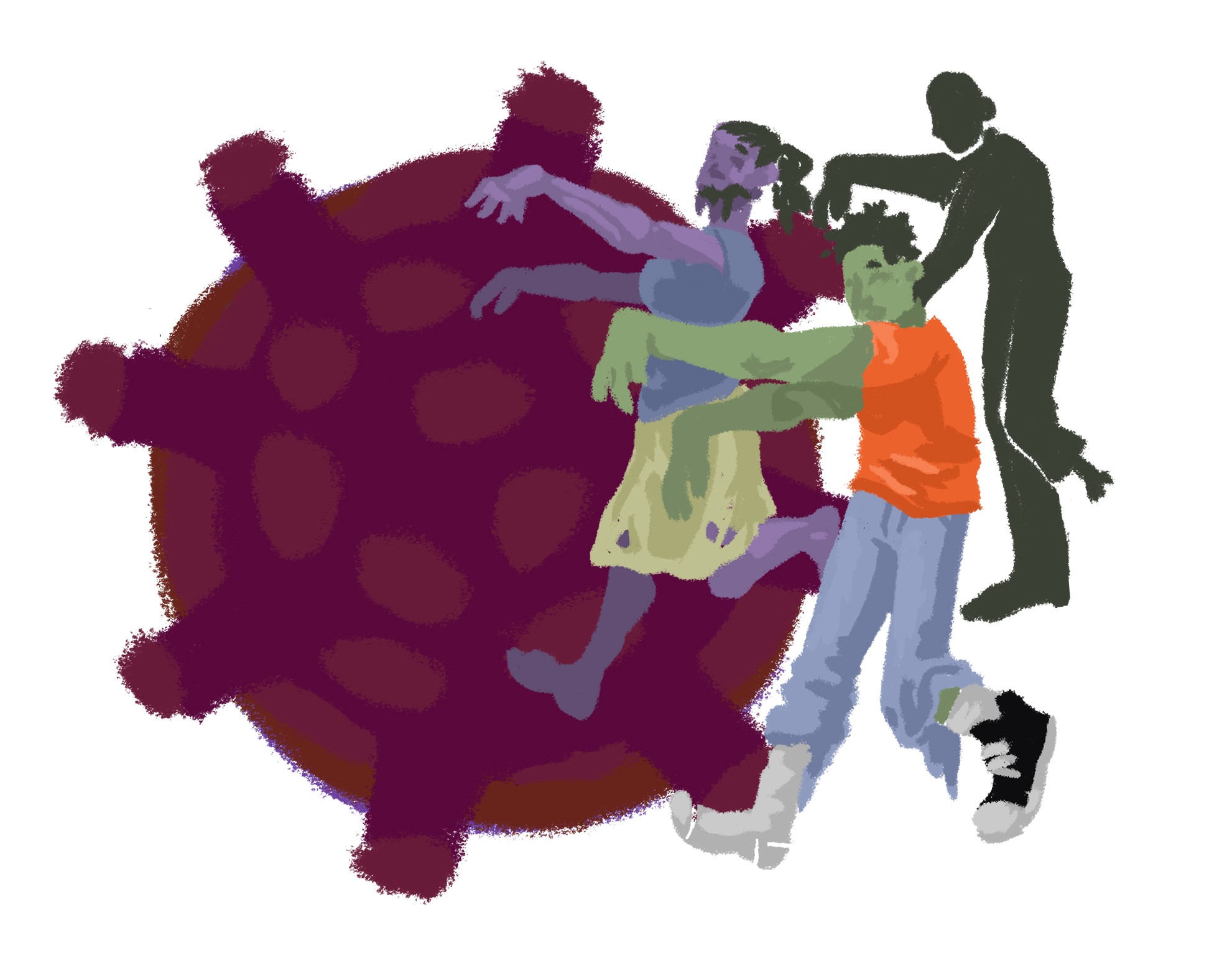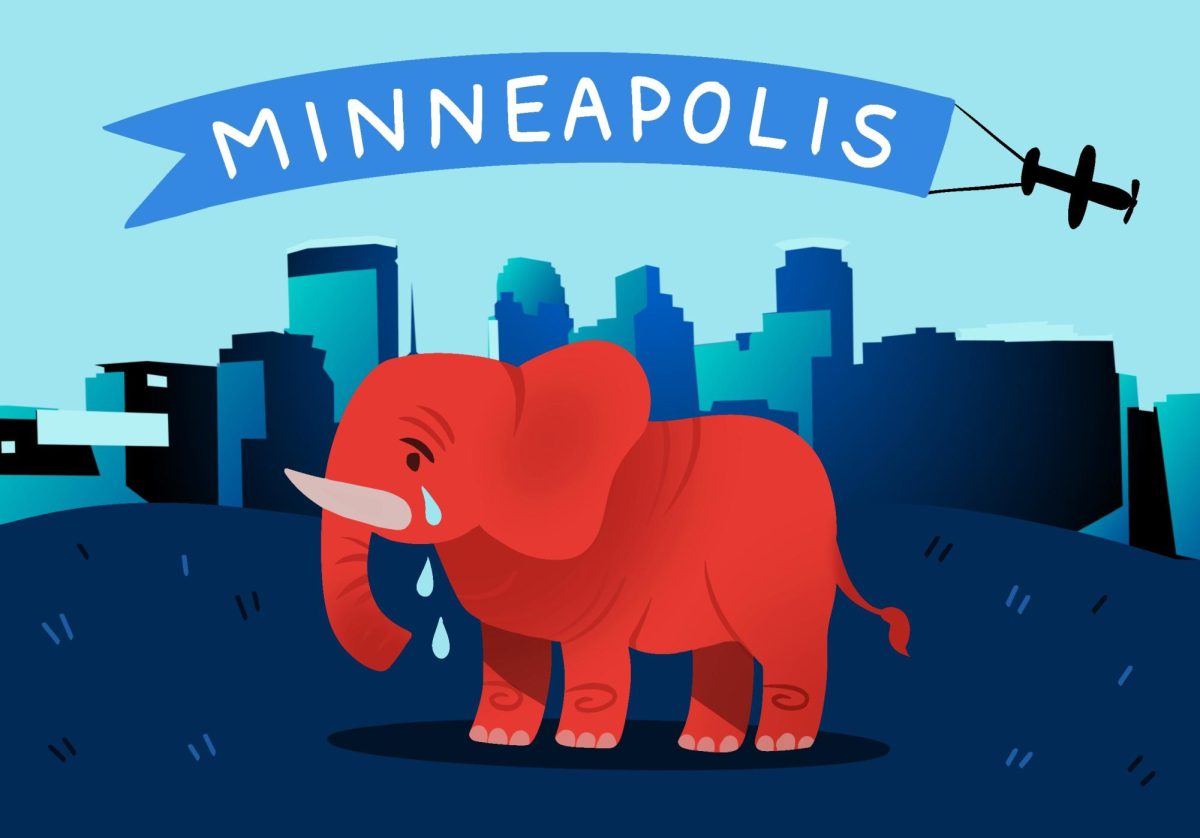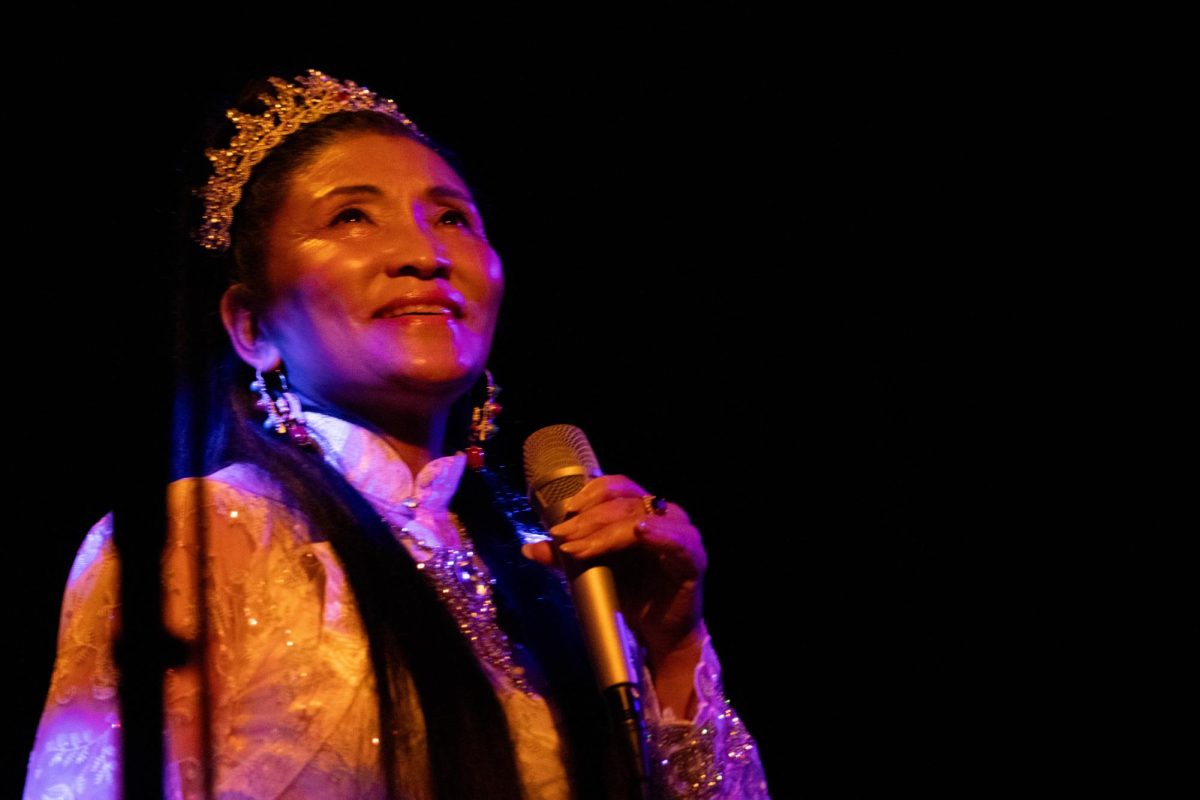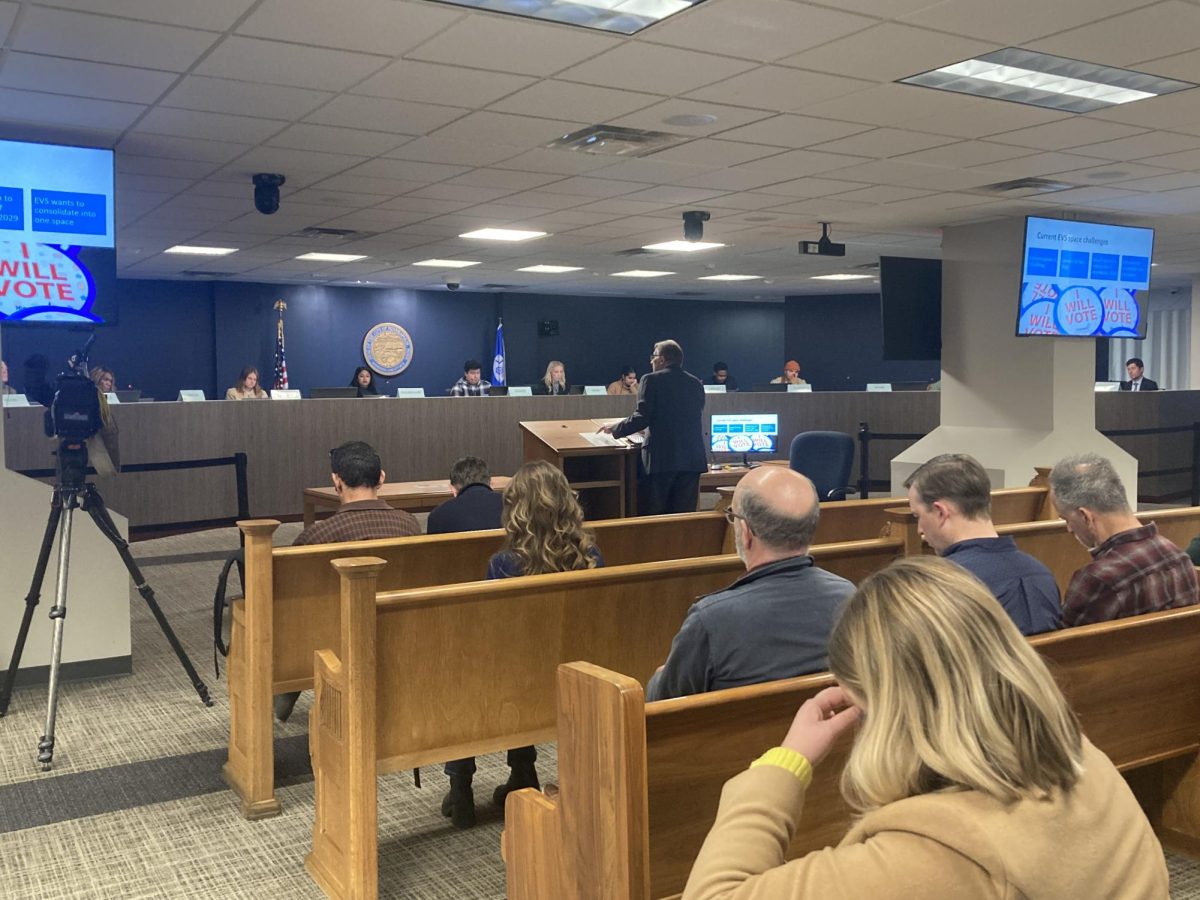A student-run skit has posed a significant question to the University community: What is offensive when depicting the coronavirus?
In February, a group of students acted out a skit in front of a crowd of Admissions Ambassadors, student volunteers who give tours of campus to prospective applicants. The skit, directed by one student leader in the program, depicted a student who went to China on study abroad and contracted the coronavirus, spreading it to campus — and turning people into zombies.
Three days after the skit, the student who created it, Jesse Wolk, issued an apology to the organization after receiving pushback from some members of the University community who called it insensitive.
The skit did not depict people of any particular race or specifically target Chinese culture, Wolk said. Instead, it depicted students turning into zombies after contracting the virus.
The University’s Office of Admissions removed him from his leadership position about two weeks after the skit.
Less than three weeks after the skit, the Office of Admissions decided to suspend the entire program as a result of the backlash. The program will resume after members receive “cultural sensitivity training,” according to Office of Admissions Executive Director Heidi Meyer, although tours have since been canceled through April 2020 as a result of the COVID-19 outbreak.
The Office of Admissions, the undergraduate student government, called the Minnesota Student Association, and the Asian Pacific American Resource Center have all criticized the skit in public statements. Along with a handful of people on social media, they argued said was insensitive and sent the wrong message about the deadly virus.
Some members of the Admissions Ambassadors program and other groups say the incident points to larger institutional issues, like a need for greater diversity training and greater diversity in staffing, that should be resolved to prevent similar situations.
Though it is unclear how much pushback, if any, Wolk received from team members taking part in the performance, Wolk took full responsibility for the skit in an interview with the Minnesota Daily.
Wolk added that he was sorry for what happened, though he felt the response was slightly disproportionate.
“Some people called my actions xenophobic and racist,” he said. “Xenophobia and racism are explicit, which is not to say my actions weren’t [those things]. But I wasn’t trying to explicitly say that a certain group of people shouldn’t be in this country because of their race or ethnicity. … I wish those people would have asked me.”
Skit incident
The skit was one of many performed for fun at an annual retreat for the Admissions Ambassadors program on Feb. 15, which members said was meant to encourage community within the organization.
“… The virus evolved, and I turned into a zombie. I turned everyone else on my team into a zombie and that’s how we became the ‘backward wolking dead,’” Wolk said. “That was the skit. I didn’t think anything of it at the time.”
Wolk said the skit was based on his own experience with study abroad and was entirely his idea. There are about 10-15 people on each team in the program, and before being removed from his position, Wolk led one of those groups.
“I was ignorant,” Wolk said in an interview. “My actions that day on February [15] didn’t really represent the organization as a whole.”
Although he was removed from leadership, the exact nature of Wolk’s position going forward has not been finalized.
The day of the skit, ambassador team leader Angela Sim said she approached two supervisors to voice her concerns with the skit’s content. She thought it was insensitive toward those affected by the virus but not entirely atypical of behavior exhibited in the organization.
“… I remember kind of looking around and people definitely looked uncomfortable,” Sim said of the performance. “This situation isn’t the only time where I felt like there could have been better language use or inclusivity.”
University response
Following the skit, some University stakeholders denounced the skit as racist.
“The failure to preemptively assess the problematic nature of the content within the skit is deeply troubling to our organization. We express shock and disappointment for what has happened, and for the implicitly xenophobic, racist, and dehumanizing messages laced throughout,” reads a public statement from MSA, the University’s undergraduate student government.
The University’s Asian Pacific American Resource Center (APARC) also issued a public statement.
“APARC is deeply disappointed that a group of student leaders from the Office of Admissions, who serve as critical first touchpoints for University of Minnesota prospective students and families, made light of a global health concern and perpetuated xenophobia and stereotypes of Asian heritage communities. … APARC stands against all actions that continue to enable xenophobia, stereotypes and racism targeting communities of color,” reads APARC’s statement.
Office of Admissions Executive Director Meyer also made a statement to the Minnesota Daily.
“We expect anyone associated with admissions – including all ambassadors – to show respect, empathy and understanding for all members of our community. This incident, and those involved, did not meet that expectation. We are committed to being welcoming and inclusive.”
Former admission team leader Amy Zhou, whose family lives in China, said she has been directly affected by the pandemic. Zhou intended to study abroad in China earlier this semester, but her program was canceled due to COVID-19 concerns.
“I was obviously very hurt,” Zhou said. “This is who represents the University. [Admissions Ambassadors] are sending a very clear message that [they] do not care about students of color [if] nothing happens.” She also criticized Wolk’s apology.
Zhou reached out to program leaders with concerns as to how the situation was being handled. She expressed anger over what she said was a lack of transparency and perceived inaction. In response to her concerns, she received a phone call and a referral to the University’s Care Manager program, which she felt was insufficient.
Students and Admissions Ambassadors alumni also shared one of Zhou’s social media posts about the incident.
“It’s very clear that, like, past members of the organization want to see the organization handle this differently,” said ADAMs alumnus Cole Sterr.
Moving Forward
Some members of leadership said more needs to be done to improve diversity and equity training in the program.
“We are re-evaluating and taking direct action to ensure our commitment to diversity is consistently reflected by those who contribute to the work of Admissions,” Executive Director Meyer’s statement reads. “We are working with partners across the University on a plan that will shape how all of us will continue to address this issue.”
Members like Sim have already begun work with a series of meetings with APARC to speak about the impact of the skit and equip themselves to better support members of color.
“There’s actually something that can be done here,” Sim said. “We’re having those conversations [and] it’s been really great to have that support … And I think that that only continues.”













